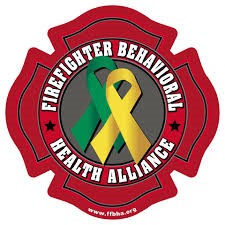Joshua – The Servant Leader

Photo by Matthew Brodeur on Unsplash
Working in constantly changing and diverse environments, First Responders are frequently under pressure. We work in dangerous and critical situations. We are participants in the afflictions and suffering of others. The daily grind of a first responders’ life can change them over time. Therefore, a particular type of leader is needed to guide them through the realities of the profession.
Because of public safety organizations’ bureaucracy, there are little or no positive human interactions. Unfortunately, many leaders use top-down and sometimes constraining managerial policies and procedures, which is very toxic to the organization. Self-centered leaders regularly produce brilliant short-term consequences by overbearing, worry-inducing, and oppressive tactics. Leaders who put themselves above those they lead will fail. Leaders must stay away from self-promotion or title seeking.
26 Not so with you. Instead, whoever wants to become great among you must be your servant, 27 and whoever wants to be first must be your slave— 28 just as the Son of Man did not come to be served, but to serve, and to give his life as a ransom for many.”
Matthew 20:26-28 NIV
Coined in 1970 by Robert K. Greenleaf, Servant Leadership is a timeless leadership style. Mr. Greenleaf defines servant leadership as:
“Servant leadership is a philosophy and set of practices that enriches the lives of individuals, builds better organizations and ultimately creates a more just and caring world.”
Being revolutionary, servant leaders dismantle traditional power leadership models. The servant-leader puts the employee first; they are humble and serving. Servant leaders help develop their team in ways that free up potential, creativity, and a sense of motive.
Servant leadership is not something new. It dates back to the Mosaic Period, starting in the book of Genesis. In the last few decades, in secular circles, servant leadership has become a buzzword instead of a statement of leading through humility.
In his book ‘Guided by Grace,” Dr. Paul Chappell, the senior pastor of Lancaster Baptist Church, wrote:
Good spiritual leaders are shepherds, not saviors; leaders, not lords; guides, not gods. When the tactics of men tend to political maneuvering, position may be gained, but it is without purpose. … Godly leadership and authority are conferred by God and must not be grasped or seized. (Sword of the Lord Publishers, 2000, pages 15, 48–49)
Servant leaders should be spiritual leaders; The Bible tells us what God wants us to do:
2 Be shepherds of God’s flock that is under your care, watching over them—not because you must, but because you are willing, as God wants you to be; not pursuing dishonest gain, but eager to serve; 3 not lording it over those entrusted to you, but being examples to the flock. 1 Peter 5:2-3 NIV

Photo by Aaron Burden on Unsplash 2
Joshua, son of Nun, was a servant to Moses as they led the Hebrews out of Egypt’s bondage. Moses mentored him; Moses taught him the laws of God. Having to take over the leadership role of Moses, Joshua had to step into the shoes of one of the greatest leaders of all time.
Many will presume the servant leader as frail, timid, quiet, and weak. In contrast, Servant Leaders are to be Strong and Courageous as commanded by God; “Have I not commanded you? Be strong and courageous. Do not be afraid; do not be discouraged, for the Lord your God will be with you wherever you go.” Joshua 1.9 NIV.
Joshua became a great leader because he Followed God’s Word. God commanded Joshua to; “Be strong and very courageous. Be careful to obey all the law my servant Moses gave you; do not turn from it to the right or to the left, that you may be successful wherever you go.” Joshua 1.7 NIV.
Servant leaders are forward thinkers; they mentor others, they Prepare the Next Generation of Leaders. As God mentored Moses to lead Israel out of Egypt, He also began to prepare Joshua to lead after Moses. God told Joshua, “No one will be able to stand against you all the days of your life. As I was with Moses, so I will be with you; I will never leave you nor forsake you.” Joshua 1.5 NIV. Joshua took the time to teach those who will lead and pass to future generations about God’s love and goodness.
Traditional leaders want to be acknowledged for their accomplishments. They boast about what they did, wanting to stay in the “limelight.” Driven leaders seek the praise and recognition of others; servant leaders seek the praise and recognition of God.[1] Servant leaders are humble, not needing to brag about their achievements. They recognize the source of their success, Giving all the Glory to God. Servant leaders focus on God, then their people, and lastly themselves. As he neared death, Joshua reminded Israel about God’s goodness; “You yourselves have seen everything the Lord your God has done to all these nations for your sake; it was the Lord your God who fought for you.” Joshua 23.3 NIV, and “One of you routs a thousand, because the Lord your God fights for you, just as he promised.” Joshua 23.10 NIV.

Photo by Cytonn Photography on Unsplash
During your career as a first responder, you will encounter hypocritical leaders. They do not keep their word; they use deception to make them look good; they have a “do as I say, not as I do” attitude. Servant leaders Keep their Promises and maintain their integrity, even when others don’t, even if it is inconvenient. The Bible tells us, “18 But the Israelites did not attack them, because the leaders of the assembly had sworn an oath to them by the Lord, the God of Israel. The whole assembly grumbled against the leaders, 19 but all the leaders answered, “We have given them our oath by the Lord, the God of Israel, and we cannot touch them now. 20 This is what we will do to them: We will let them live, so that God’s wrath will not fall on us for breaking the oath we swore to them.” Joshua 8.18-20 NIV.
Many leaders will take sides or hold positions with little thought. They believe the world revolves around them; they love the attention given to them by young impressionable subordinates. Prideful leaders create division; servant leaders seek unity.[2] Servant leaders also take sides; they Take the Side of the Lord. They align themselves with God’s will because they know that God is just and righteous, full of grace and mercy. By taking the side of the Lord, we will be led to victory.
When given a new assignment or promotion, most leaders will start great, presenting their vision and inspiration to their people. However, as time passes, the vision fades, the motivation becomes mundane, the big picture becomes blurred, and the concept or idea is no longer supported. Employees become devastated when they learn that leadership no longer desires or intends to follow the vision. Self-filled leaders change frequently under criticism or pressure; servant leaders hold fast to Bible doctrine and continue in God’s grace.[3] Joshua learned early to Choose and Act. Other people depended on him, so he had to decide, choose, and follow through with that decision to completion. As first responders, we make life-threatening decisions every day, and we act on them; many leaders balk at making a decision, often passing the “buck’ to others.
Joshua 24:14-14 is a perfect example of his decision making; 14 “Now fear the Lord and serve him with all faithfulness. Throw away the gods your ancestors worshiped beyond the Euphrates River and in Egypt, and serve the Lord. 15 But if serving the Lord seems undesirable to you, then choose for yourselves this day whom you will serve, whether the gods your ancestors served beyond the Euphrates, or the gods of the Amorites, in whose land you are living. But as for me and my household, we will serve the Lord.” These verses show how Joshua made a decision (choice) and acted upon it.
Joshua became a great leader because of his love for God and his desire to follow God’s word. Joshua led from the front, he was loyal and humble, and he gives us timeless principles of servant leadership as a model for our leadership style.
Good spiritual leaders are shepherds, not saviors; leaders, not lords; guides, not gods.
Senior Pastor Paul Chappell D.D.
IF YOU HAVE THOUGHTS OF SUICIDE GET HELP NOW
Law Enforcement Copline (800) 267-5463
Firefighters / Medics Fire/EMS HELPLINE (800) 731-FIRE (3473)









